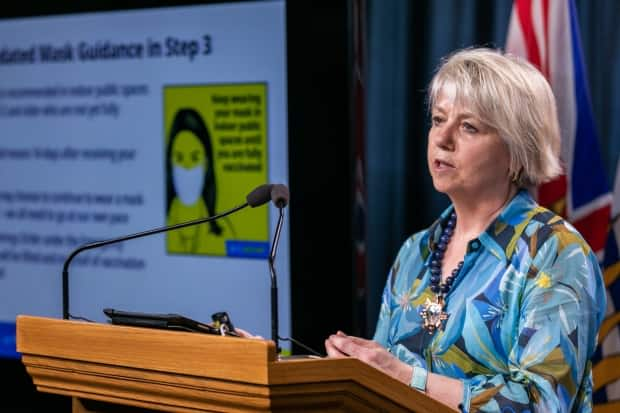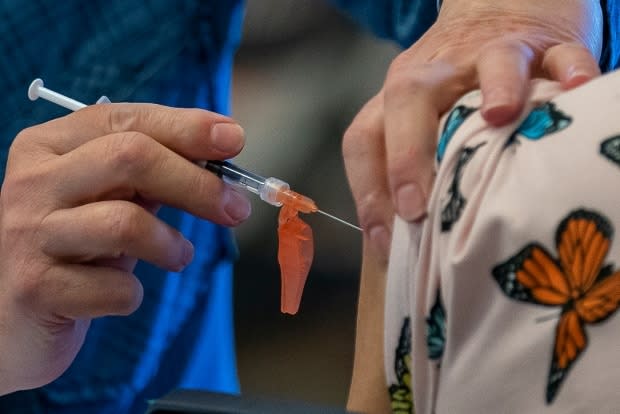B.C. looks to improve lower COVID-19 vaccination rates in the Interior as potential 4th wave looms

The number of daily COVID-19 cases in British Columbia has tripled during the past three weeks, and at the same time the delta variant has grown to become the most dominant strain in the province.
Based on what has transpired in Israel, the United Kingdom, Netherlands, and several other countries with similar vaccination campaigns where the variant took hold, the number of positive cases in B.C. could soon approach the heights of the second and third waves.
Relatively high vaccination rates mean it's unlikely the province will see as many deaths or hospitalizations — but experts say recent numbers are a clear sign the pandemic isn't over in B.C.
"We do have really high vaccination rates, but they're not even across the province," said Sally Otto, a professor at Vancouver's University of British Columbia and a COVID-19 modeller.
"Communities with lower levels of vaccinations are really susceptible, because this virus is so good at transmitting," she said. "It's like a fire, and those places that have less fire protection are at far greater risk."
Majority of cases now outside Lower Mainland
Much like B.C.'s actual wildfires, the province's COVID-19 cases right now are concentrated in the Interior. It has more than half the daily cases and active cases, despite having around 15 per cent of all residents.
Nearly 80 per cent of eligible adults have their first dose in Metro Vancouver and most communities on Vancouver Island, and nearly between 50 and 75 per cent have it in the rest of the province.
"It's not … a large number of out-of-province individuals that are driving the surge in cases," said Dr. Silvina Mema, medical health officer for Interior Health.
"It's individuals that live in B.C., in the Interior. They're young … and many of them work in the hospitality industry: restaurants, fitness studios, clothes companies, bars — those types of companies are being affected."
Younger people in hospitality industries have generally been at a much higher risk of contracting and spreading the virus throughout the pandemic.
But the combination of loosened restrictions and the greater transmissibility of the delta variant is having its greatest impact so far in the areas with lower vaccination rates.
"There are some pockets of people who are hesitant about the vaccine, don't yet have the confidence in the vaccine, and we've seen that ... in some communities across both the Interior and the North," said Provincial Health Officer Dr. Bonnie Henry at a Tuesday press conference, where a new, more targeted phase of the vaccination campaign was announced.
First doses continuing
But Dr. Henry admitted part of the challenge was getting the vaccine to everyone in the Interior and North who wants it, particularly in less populated areas.
"It's been frustrating," said Ashley Postnikoff, who lives about 25 kilometres west of Nelson and is booked for her first vaccine this week.
She said at first she didn't get an email asking her to register, followed by weeks of trying to book an appointment online without any spaces available.

Postnikoff said she understands concerns about vaccination rates in the Interior, but hopes people don't paint the area with too broad a brush.
"Not all of us are anti-vaxxers," she said.
"I'm happy to be getting it, especially with the numbers booming here again. Seeing … how people are so resistant to wear a mask, sanitize your hands, follow the rules, it's getting scary now and getting to the point where I desperately want to get in."
There are plenty of people like Postnikoff in B.C., as evidenced by the fact the province has seen between 4,000 and 10,000 first doses continue to be administered for weeks now.
At least in the short term, it's unlikely to stop the surge.
"I think there was some wishful thinking going on here in British Columbia that maybe we'd be spared," said Otto, who cautioned that higher case counts could spread to Metro Vancouver as well with current vaccination numbers.
"I hope people take this as a wake-up call."

